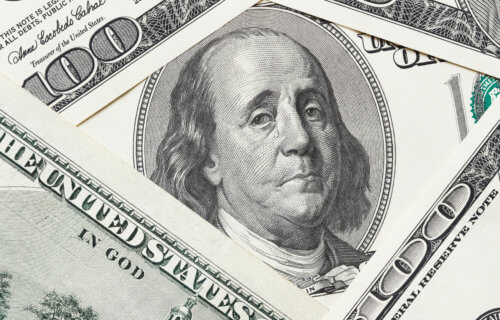PULLMAN, Wash. — The COVID-19 pandemic did more than just upend health disparities among Americans the past two years. A new study finds the economic divide between the “haves” and the “have-nots” continued to grow during this time, too.
Researchers from Washington State University collected data from 315 employed adults across 45 states and Washington, D.C. and analyzed the impact of precarity — a persistent insecurity in employment or income. Researchers looked at measures like job insecurity, financial insecurity, prior unemployment, household income, and underemployment.
Amazon’s crowdsourcing site MTurk helped to recruit the participants between October and December 2020. The study did not include unemployed individuals and most of the participants had traditional employment rather than freelance or contract work — typical of the gig economy.
Researchers found that most employees either had all positives or negatives on these measures with little in between.
“We were expecting to find different nuanced groups. We didn’t. We only found two: those that were doing well and those what were doing really poorly,” says WSU study lead author and psychology doctoral candidate Andrea Bazzoli, in a university release. “It’s a sign of a two-speed economy and the K-shaped economic recovery: some people are being left behind. That is pretty concerning as we recover as a nation from the COVID-19 pandemic.”
According to the study, there wasn’t much difference demographically among the haves and have-nots in terms of gender, race, and age. Researchers say those doing well had more education than the have-nots. Specifically, 50 percent of employees who were doing well had college degrees, compared to just 35 percent of the workers who were faring poorly.
Things could be worse for gig workers
The have-nots also experienced worse physical health, life satisfaction, and higher levels of work-family conflict.
Study co-author Tahira Probst, a psychology professor at Washington State University, notes that precarity can create a spiraling effect. For example, if employees are receiving poor pay, they might not be able to go see a doctor, which leads to poor health and makes them less fit for their jobs.
“These cycles have implications for organizations as well as for the employees themselves,” says Probst. “This serves as a warning: as we see increasing reliance on non-standard employment relationships in the gig economy that by definition, contractually, have higher levels of precocity, we’re going to see more people falling into this group with more instances of these negative outcomes. Therefore, it is important for companies and society at large to identify places where we can short-circuit these loss spirals.”
Bazzoli and Probst say more research is necessary, including replicating these results with a broader group of U.S. workers and extending the analysis to include European workers to see if countries with stronger safety nets have different outcomes for employees. Moreover, Bazzoli called the precarious work arrangements in a gig economy a “double-edged sword.”
“Organizations might see some benefits from non-standard work arrangements because they save money, but it comes with side effects of a less healthy, less productive and less committed workforce,” explains Bazzoli. “Is it worth prioritizing the short-term goal of saving money by using those types of arrangements? Because there are long-term consequences.”
The study is published in the International Journal of Environmental Research and Public Health.

